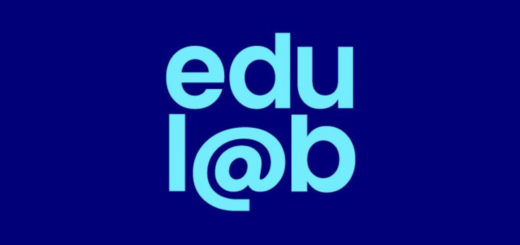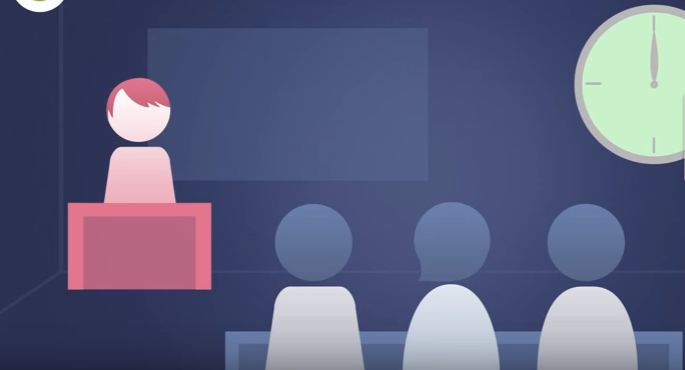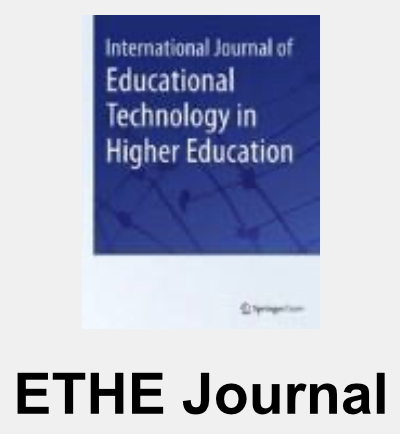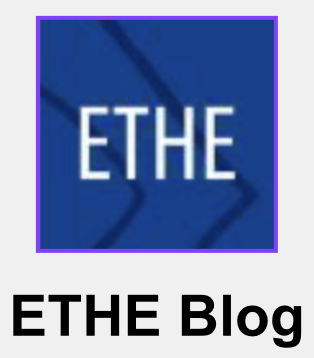Research stay summary of the Edul@b doctoral student Mitchell Peters in Edinburgh
Research Stay Purpose
After completing a 3 month research stay at the Centre for Research in Digital Education, I feel it is an important moment to reflect on how the stay has informed my work, including key research findings, implications and emerging questions. My intention in working in Edinburgh as a visiting researcher was to experience in situ another academic reality, build a professional network and participate in a community of practice of researchers in the field of digital education. My goal was to take advantage of the training and collaboration opportunities available through workshops, reading groups, seminars and meetings. A clear objective was to come to the CRDE after completing a 5 month data collection phase ending in July 2018 as an opportunity to begin data analysis and report writing within a different academic context. As such, seeking out informal guidance and feedback, while having the opportunity to present my work and gain valuable insight from peers and experts was a clear goal.
One of the principle benefits of a research stay is interacting with a different academic community and reality beyond your own institution, getting to know the valued disciplinary (or interdisciplinary) practices and perspectives that is unique to each context. Of course, there is much insight that can be gained by analyzing the outward facing online communication and digital presence of the M.Sc. program in Digital Education. The program structure, teaching methodology, course learning outcomes and assessment approach are fully transparent through the digital footprint of the program. Likewise, individual faculty members who constitute the program team are also highly visible online; their research outputs, their twitter feeds, blogs, and other digital activities can give a sense of the identity and DNA of the masters program. Similarly, a variety of student learning artefacts are visible through open blogs, twitter feeds, MOOC’s, and other open sites. That being said, and this might be a central tension of purely digital/distance research, might there be some limitations in ‘understanding’ and ‘knowing’ a program context and phenomenon at a distance? In this sense, Lave and Wegner’s seminal work on situated learning and community of practice has certainly rung true for me over the last several months. Informal chats while preparing tea, casual lunches in the lounge, and more formal meetings and research seminars have all given me a more in-depth and situated perspective of the program and the team members that shape and influence the design and underlying structures, assumptions and practices. In this sense, my stay has given me ‘rich’ contextual knowledge that can then inform my data interpretation, implications and report writing.
Research Focus and Activities
In short, my current doctoral research focuses on examining student experiences of learning in higher education through a multi-site and multi-case study. Professional graduate programs at the intersection of education and digital technologies have been selected at the Open University of Catalonia, Spain, the University of Edinburgh, U.K. and the University of Illinois Urbana Champagne, U.S.A. as the research settings. The general aim is to understand the complex relations and interplay between the academic and disciplinary practices developed in formal university scenarios and the everyday informal and professional practices that happen outside of the classroom. As such, my work is interested in understanding how students engage learning across a continuum of contexts—from formal to informal—as they develop valued academic practices and perspectives in the field of digital education. In particular, I am interested in understanding the strategies students use to generate opportunities for learning across a continuum of contexts and practices in digital environments to support formal academic learning. I also aim to understand how students conceive of their learning engagement across these contexts and practices (i.e. what outcome or impact might this engagement have on their current practice or future professional practice?).
Much of my time at the Centre was spent analyzing mostly qualitative case-study data collected across 3 sites from 13 student participants (4 from U of E). An initial thematic analysis of the program structure and course requirements led to the development of an interview and observation protocol underpinned by a lifelong learning ecologies perspective. Two distinct phases of interviews examined the intentions for learning online, past trajectories and student approaches to learning through learning accounts of a typical ‘work’ week that may be considered a “vignette” approach. Online observations followed the initial interview to find patterns of practice and behaviour in observation of a limited range of open sites such as twitter, linkedin, and personal websites or blogs. The second interview was designed to corroborate thematic results from the first interview and online observations, as well as pose follow up questions. After initial open coding, a thematic network analysis (Attride-Stirling, 2001) was completed attempting to systematize the extraction of lowest order premises evident in the text (basic themes), to categories of basic themes grouped together to form ‘organizing themes’, in order to construct superordinate themes that encapsulate the principle meanings and richness of the data into ‘global themes’.
My experience working at the Centre for Research in Digital Education has given me rich insight into the deep and implicit structures of the program. This in turn has helped me understand how students are encouraged to think and act in the field of digital education, and how valued (inter)disciplinary practices and perspective may converge or diverge across the broader field of education and digital technology. The interdisciplinary approach of the teaching team in Edinburgh is a distinguishing feature of the program, shaping how students critically engage in the field of digital education. Influences such as critical post-humanism, postdigital education and science, mobilities theory, digital geographies, digital cultural heritage and multimodal assessment, among others, have underpinned the deep and implicit structures of the CRDE and MSc. in Digital Education. In turn, these structures have also helped me think about how students are engaging in their studies across contexts and practices, and how differences and similarities across case sites and across students are impacted by these influences.
Timeline and Activities for Completing Doctoral Work
As a full time doctoral student in my final (third) year of study, I am aiming to submit my thesis by the summer of 2019. With data collection completed, I am now in the final phases of the research design. The next step will include interpretation and integration of the qualitative (interviews, observation, program documentation) and the quantitative (survey) data analysis. The final phases of data interpretation and methods integration as well as report writing and assessing implications of the results will unfold from January to June 2019. In this time, I also hope to disseminate initial results and implications through academic conferences as well as journal publishing opportunities. Similarly, I would like to continue to engage with the two programs I have worked with throughout the study (U of E and UIUC) in order to share and disseminate relevant research outputs where appropriate (webinars, etc.). The future of online higher education will continue to be a fast paced and rapidly evolving field, and I would like to continue to research and prepare professionals who are making sense of the potentialities and opportunities for personal and professional development through lifelong learning.








19 Responses
1decline
123flash chat gay https://bjsgaychatroom.info/
free chat with men – live gay cams, free gay webcams at chaturbate https://gaytgpost.com/
freer gay chat rooms https://gay-buddies.com/
gossip slots https://2-free-slots.com/
penny slots 4u https://candylandslotmachine.com/
calendar with time slots https://pennyslotmachines.org/
aristocrat slots free play https://slotmachinesworld.com/
winning slots https://slotmachinesforum.net/
myvegas slots facebook https://slot-machine-sale.com/
high-roller-slots https://beat-slot-machines.com/
vegas slots https://download-slot-machines.com/
free quarter diamond slots https://411slotmachine.com/
big fish free slots https://www-slotmachines.com/
mla dissertation citation https://buydissertationhelp.com/
cheap dissertation help in new york https://dissertationwriting-service.com/
dissertation writing scams https://mydissertationwritinghelp.com/
doctoral thesis vs dissertation https://dissertations-writing.org/
what is a dissertation proposal https://helpon-doctoral-dissertations.net/